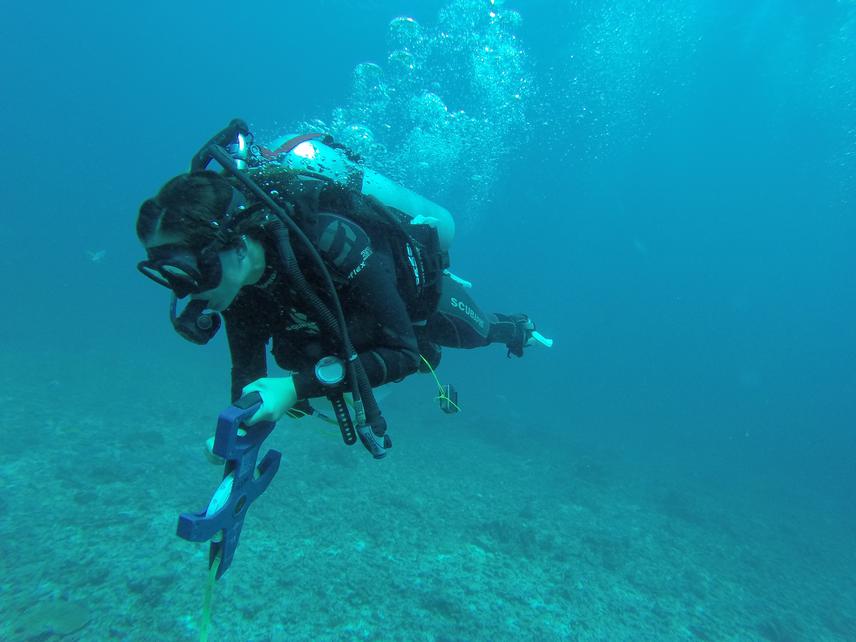Kaylee Smit
Other projects
28 May 2013
The Physiological Dynamics of Intertidal Corals along the East Coast of South Africa: Coping in Marginal Environments
Regular monitoring informs management decisions – it tells us when coral reefs are under pressure, and when our interventions are making a difference. However, long-term monitoring of vast ocean areas is challenging, time-consuming and expensive. As such, it is important to harness alternative resources that are available and use innovative approaches and methods to help fill these gaps. One such approach includes citizen science to collect meaningful information from marine ecosystems, which not only provides useful scientific data for management and conservation but has a range of additional conservation benefits such as science education, increasing ocean literacy, capacity building and community engagement.

Conducting underwater visual census surveys to collect information on the status of coral reefs. © Stuart Laing, UniSey/GIF
This project will pilot a citizen science approach to improve long-term monitoring of coral reefs in South Africa, which will not only fill knowledge gaps on the status and trends of important and threatened species (including corals and fishes), but it will increase capacity for sustained ocean observations, improve education and awareness for conservation and foster ocean stewardship by applying a community-driven approach to monitoring and conserving marine protected areas. Evidence-based decision making underpins effective conservation.
The key activities of the project include: (1) Develop protocols and methods for a citizen science reef monitoring initiative, (2) Increasing capacity for coral reef monitoring by training students, scientists and volunteer citizens, (3) Conduct reef surveys at two pilot locations to test methods and identify ways to improve conservation, (4) Streamline data and knowledge sharing to improve management and conservation of coral reefs, and (5) Increase awareness and foster ocean stewardship to improve conservation of coral reefs.
One of the objectives of the project is to identify processes and mechanisms to improve data collection, but more importantly, to increase access to data and to enhance science-to-policy pathways. Thus, not only will this project contribute ecological impacts for long-term sustainability of coral reefs (and threatened species) in these MPAs; but it aims to increase capacity and improve processes for sustained ocean observations needed for long-term monitoring and management.
Header: A training opportunity for improving fish identification.